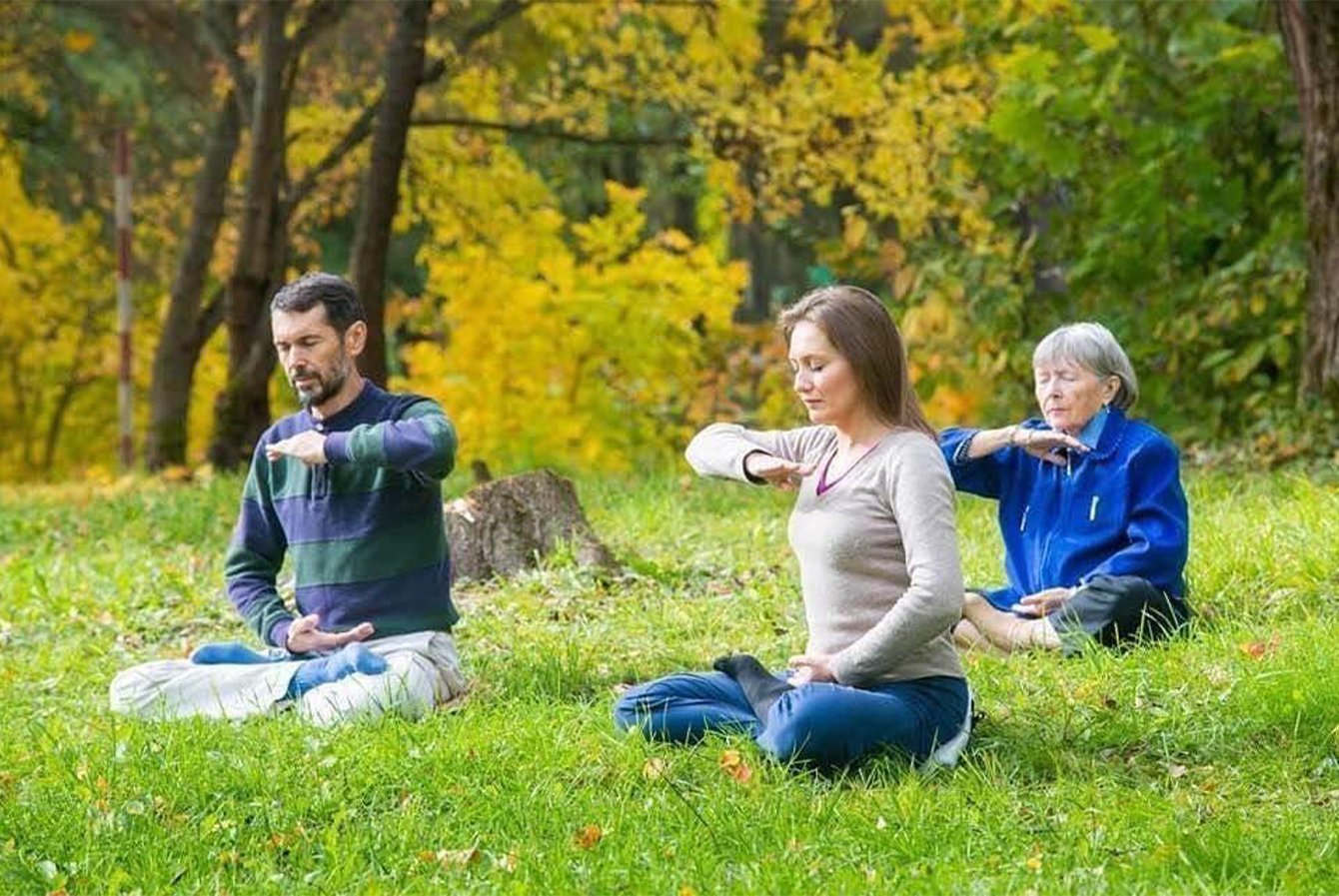
An Insight Into The Traditions Of Indigenous People: "Nature Does Not Belong To Us"
The traditions of indigenous peoples that lived on Earth for thousands of years, and their amazing connection to Mother Earth should be a source of wisdom and proof that humans can live in harmony with their environment.
Each native population, descended from the original inhabitants of a particular area, has its own way of life and worldview, which have been passed down through countless years in the shape of culture and customs.
Traditions Of Indigenous People – Respect For Life
Through countless movies, books, stories, and documentaries, we have been given the chance to understand and connect with the traditions of indigenous people.
Even while each indigenous tribe is incredibly distinct, cultural studies have discovered that they have a surprising amount in common when it comes to how they interact with one another and with the environment.
The core of many of the traditions of indigenous people is based on a profound understanding of life and its relationship to the Universe, despite the fact that their lives take place in a very different environment from ours.
Many indigenous communities mostly engage in farming and hunting because they live distant from urban areas.
A 2017 study by the Environmental Science and Technology Institute of the Autonomous University of Barcelona revealed that the traditions of indigenous people, their social interactions, successful hunting, and good health, make them happier than money does.
Traditions Of Indigenous People - We Belong To Nature
Respect for the environment has been fundamental to many ancient civilizations and aboriginal groups and, of course, a key element of the traditions of indigenous people.
Humanity was able to thrive as a species in the past because people respected nature's inherent balance and lived in peace with it.
Traditional wisdom, as part of the traditions of indigenous people, is now more important than ever because the ecosystem has seen exponential harm in a matter of decades that has never been seen before.
The majority of tribes depend on nature for their food, medicine, and spirituality, in addition to being their place of residence.
Studying the environment, understanding its cycles, and changing the way of living in order to live together in peace and harmony is an intrinsic part of the traditions of indigenous people.
Indigenous people simply take what they require to survive and believe nature does not belong to us, but we belong to nature. Based on a thorough understanding of what and how much nature can supply, they act with great care.
This knowledge of nature is ingrained in people from an early age and is passed down from one generation to the next as part of the system of traditions of indigenous people.
For instance, according to Vision Times, when the Yanomami people (who reside in 200–250 villages in the Amazon rainforest on the border between Venezuela and Brazil) settle in a place, their activities frequently have a negative impact on the area's mammal populations and the palm trees whose leaves are used for roofing.
As devastating as it may sound, this tribe is aware of the limits of nature, and so they leave the area before any lasting damage is done, only to return once the forest has fully healed.
Also, according to another of the amazing traditions of indigenous people, children in Yanomami communities are trained to "read" animal tracks and how to use plant sap as a hunting poison, for example.
By developing a particular ability that enables them to focus their eyesight underwater in order to find food on the bottom, the Moken children also learn to study nature.
According to custom, when a member of the Indonesian Orang Rimba tribe is born, their umbilical cord is buried in the rich forest soil on top of which a tree is planted.
Concurrent growth of the tree and the individual forges a spiritual connection that lasts a lifetime. This connection is also a central element in the different traditions of indigenous people.
Any attack or attempt at logging the "birth tree" must be repelled by the person, as doing so would injure them personally.
Don’t Be Selfish
Also, as part of the traditions of indigenous people, the aforementioned Yanomamis have a very peculiar habit. When they go hunting, they never eat what they hunt nor do they take it home.
They usually bring it to the village where the food is shared with others. Hunters only eat food that is provided by someone else.
The Hadza people of Tanzania share their possessions instinctively if they are not being utilized right away, and not expecting anything in return is a key component of their character development.
Another element engraved in the traditions of indigenous people is modesty. For instance, young people in the San tribe of Botswana are encouraged to be courageous but humble, emphasizing generosity as a positive quality and selfishness as a negative one.
Even more amazing, many tribes’ altruism extends outside of their own areas. The Baka Pygmies of Central Africa make sure the root is preserved when they pick sweet potatoes.
This encourages their growth in the forest, where wild animals like elephants and boars also eat these delicacies.
A tribe member is motivated to gather food by the duty of feeding his people, not by the need to sate his own hunger, it is another inspiring example of the traditions of indigenous people. Every extra effort he makes will probably be acknowledged with smiles when they are eating together.
During the action, he is also thinking about Mother Nature. He will not take more than the environment can support because of his profound understanding of the forest’s cycles, and he won't permanently harm their food source, which also serves as their temple and home.
Traditions Of indigenous People – Common Ground
In studying the traditions of indigenous people, you will find many common traits between different tribes and communities, on different continents. But mostly, respect for Mother Nature.
Native American beliefs and values, as in any culture, help shape life-changing decisions and plans for the future.
More specifically, the Lakota people have four fundamental values: generosity, wisdom, kinship, and fortitude.
The Lakota term for generosity (Wačháŋtognaka) implies freely sharing and giving in order to benefit one's community and all life, a common trait among the traditions of indigenous people.
For the Lakota, kinship (Wótakuye) is one of the important values coming from the thiyóšpaye, meaning extended family. It includes the ideas of living in harmony, belonging, and the importance of trusting others.
The Lakota word for fortitude (Wowačhíŋtȟaŋka), means facing danger or challenges with courage, strength, and confidence. Believing in oneself allows a person to face challenges.
And finally, wisdom (Wóksape). The knowledge and wisdom of elders are very important for the well-being of the Lakota people. This is understood to be something sought and gained over the course of one's entire life.
As a fundamental element of the traditions of indigenous people, wisdom has to do with understanding the meaning of natural processes and patterns. It means knowing the design and purpose of life.
It also has to do with understanding and living the spiritual values and beliefs upon which one's culture is founded and being able to share these with others.
Of course, these values of the Lakota are common among the various traditions of indigenous people and are found even in the teachings widespread in modern society, although perhaps not applied so strictly.
For example, we see similar values and traditions, especially the relationship with nature, with the Inuit people, in the Arctic region.
The importance of Inuit values and skills was taught by their ancestors and passed down through generations of elders that allowed them to survive in the harshest of environments.
Traditional values such as sharing of food, respect for others, and cooperation remain central to Inuit community life.
The successful settlement of the Arctic is one of the most amazing human achievements of all time, and it was accomplished by the Inuit people and their ancient ancestors. This achievement contributed to the enrichment of the traditions of indigenous people.
The Inuit are people who have lived in the area for almost 5,000 years and have a hunting-based lifestyle. The core of Inuit culture and way of life continues to be harvesting, hunting, and travel. The heart of Inuit culture is hunting.
Similar to many traditions of indigenous people, Inuit culture places high importance on extensive knowledge of the local animals and survival abilities, as well as extraordinary patience, hunting prowess, physical and mental fortitude, stamina, and bravery.
A Reminder
The traditions of indigenous people trace back to eras when everyone lived in harmony with the Universe, so we may say that by learning from them we can get closer to who we truly are.
Selflessness, coexisting in harmony with the environment, and finding satisfaction in the little things are just a few of the numerous lessons that indigenous peoples can teach us.
The way of existence of indigenous peoples can be summed up in one word: "simplicity", in contrast to the dynamic circumstances in which the majority of us live. However, it displays the priceless treasure of knowledge they possess in their hearts and minds.
The principles and traditions of indigenous people might serve as a reminder of our fundamental human nature and the great goals that everyone can have, even in today's world and way of life.


















